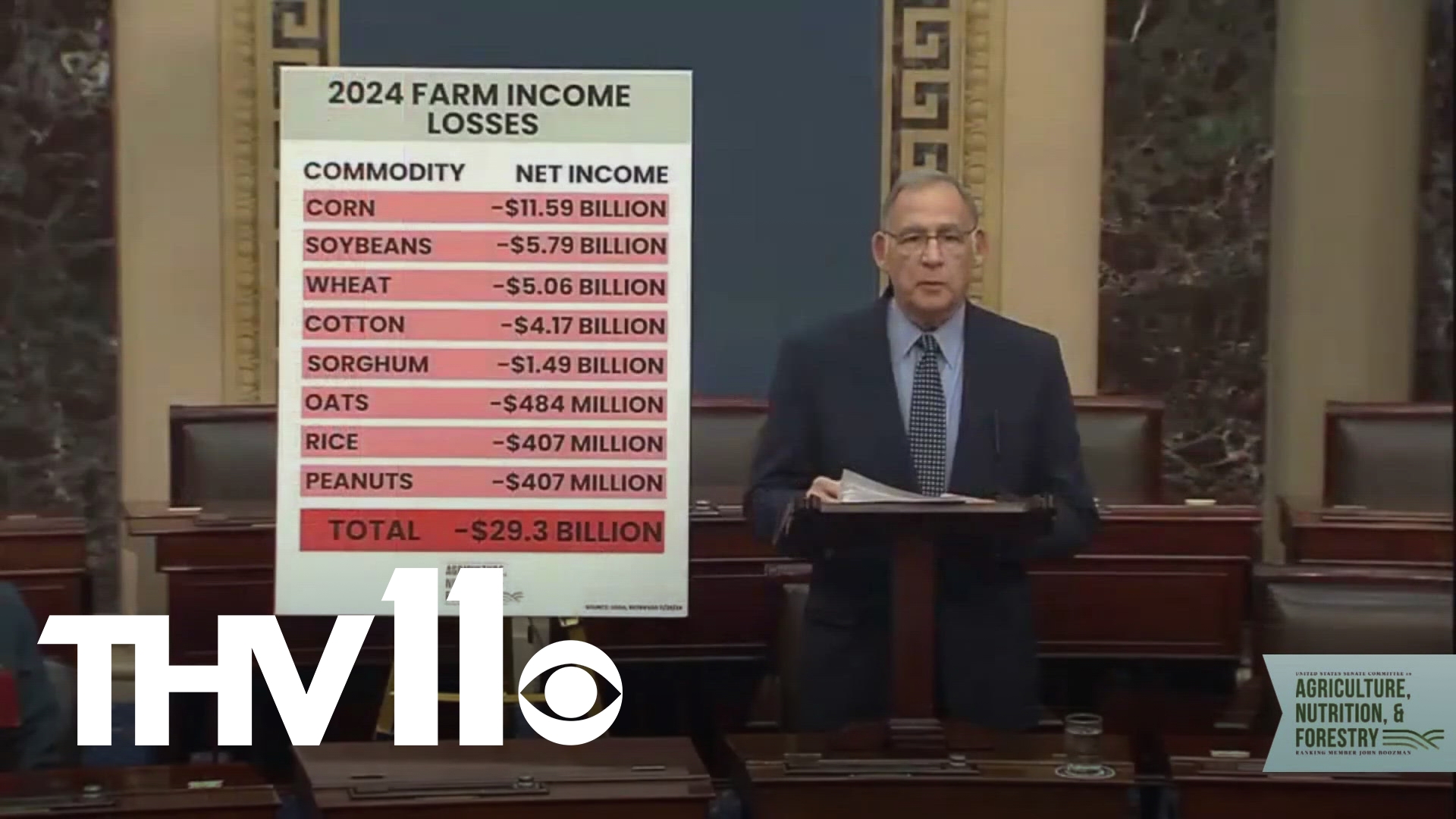LITTLE ROCK, Ark. — Arkansas lawmakers are sounding the alarm in support of farmers statewide.
On Monday, Governor Sarah Huckabee Sanders joined 16 other Republican governors in signing a letter that demands a new farm bill from Congress.
The old farm bill passed in 2018 and was set to expire in 2023 before Congress extended it one year. However, the extension has also now expired.
Also on Monday, Senator John Boozman (R-Ark.) spoke to Congress demanding emergency temporary aid for farmers.
"Farmers, lenders, and community leaders in all regions of the country are saying the same thing,” Boozman said. “Farmers desperately need help."
His concerns have been echoed by people like Brandy Rennicke Carroll, who works as the Director of Commodity Activities and Market Information for the Arkansas Farm Bureau, which advocates for farmers in the Natural State.
"Farmers are projected to lose quite a bit of money this year,” Carroll said. “In fact, we are looking at a 25.5% estimated drop in net farm income year over year."
You might have found yourself wondering what the main reason for this is. Well, the input cost for farmers (what it costs to buy things like seeds, fertilizer, etc.) has become significantly higher when compared to commodity prices, or what people will pay for things like corn, soybeans, or wheat.
Some people, like Seth Summerside, who is the General Manager of Keo Fish Farms about 25 minutes southeast of Little Rock, have noticed it.
"If we don't see some kind of help for particularly row crop farmers it is really is going to eat into their ability to stay in business," he explained.
While these problems don't affect an aquaculture business like Summerside’s quite as much— he hears about them from other farmers and notices them when he buys their crops to feed his fish.
"Input costs, from feed to fertilizer to everything,” Summerside said. “We've seen an increase in it."
The 2018 farm bill had something to protect against this called reference prices— meaning that if the price of a crop dropped below a certain amount, farmers would get paid to help make up the difference.
This is why Carroll and the GOP Governors including Sanders said the reason another extension of that bill isn’t good enough is because those reference prices are outdated and too low, thanks to inflation.
"The current reference prices that those programs are based on were set about 15 years ago,” Carroll said. “And they do not adequately reflect the cost of production, and that's why you see those huge losses that farmers are going to have this year."
Carroll also said that even if a new farm bill is passed before the end of the year, the payments farmers would get from the new reference prices wouldn’t come until 2025 or 2026.
That’s why she and her colleagues at the Arkansas Farm Bureau and Sen. Boozman have been pushing for emergency assistance in the meantime.
“Congress should provide economic assistance to producers before the end of the year,” Boozman told Congress on Monday.
Boozman is a ranking member of the Senate Agriculture Committee and will become Committee Chair when Republicans take control of the Senate in January 2025.
Summerside said he and other farmers he’s spoken to trust Boozman to get the job done.
“Senator Boozman [and] our congressional staff,” Summerside said. “They're working around the clock. They're up to speed on a lot of the issues that farmers are facing. We feel very confident in the representation that we do have.”
According to the Arkansas Farm Bureau, farming generates around $24.3 billion every year in Arkansas— good for about 14.5% of the state’s economy.

